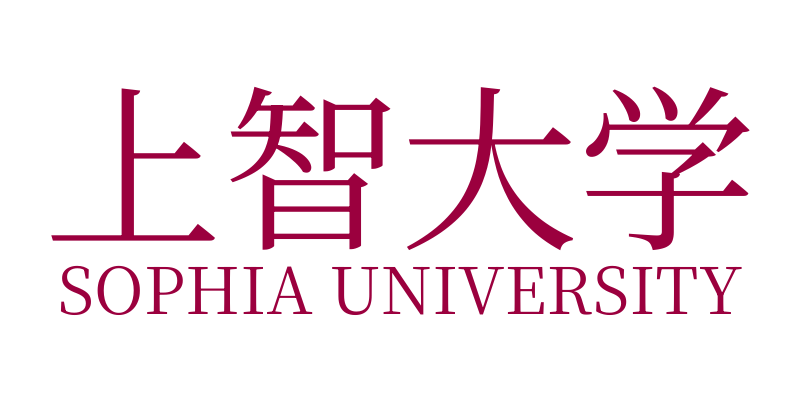The FLA offers an English-language liberal arts curriculum which enables students to acquire a strong academic foundation and intellectual orientation before selecting a disciplinary major. During the freshman year, students are required to take “core courses” which train them thoroughly in critical thinking skills as well as in writing and public speaking skills. From the second year onward, the FLA curriculum requires students to choose a major from among three broad areas, comparative culture, international business and economics, and social studies, and to study that field in close connection with neighboring disciplines. In the junior and senior years, students take advanced courses in their selected major, while continuing to take courses outside their major. This interdisciplinary orientation is designed to foster students’ ability to approach issues from multiple perspectives.
Educational Policy
The Faculty’s academic programs are designed to equip graduates with flexible and critical thinking, linguistic abilities, and cultural skills necessary to take the lead in bridging differences and promoting understanding in today’s increasingly multicultural and complex world.Diversity in the FLA student body, comprised of over fifty nationalities, including students educated at Japanese and international high schools in Japan, as well as both degree students and exchange students from abroad, provides an ideal environment for achieving the FLA’s educational mission of humanity, history and the world can equip students with the practical skills and broad perspective that are essential in this age of globalization.
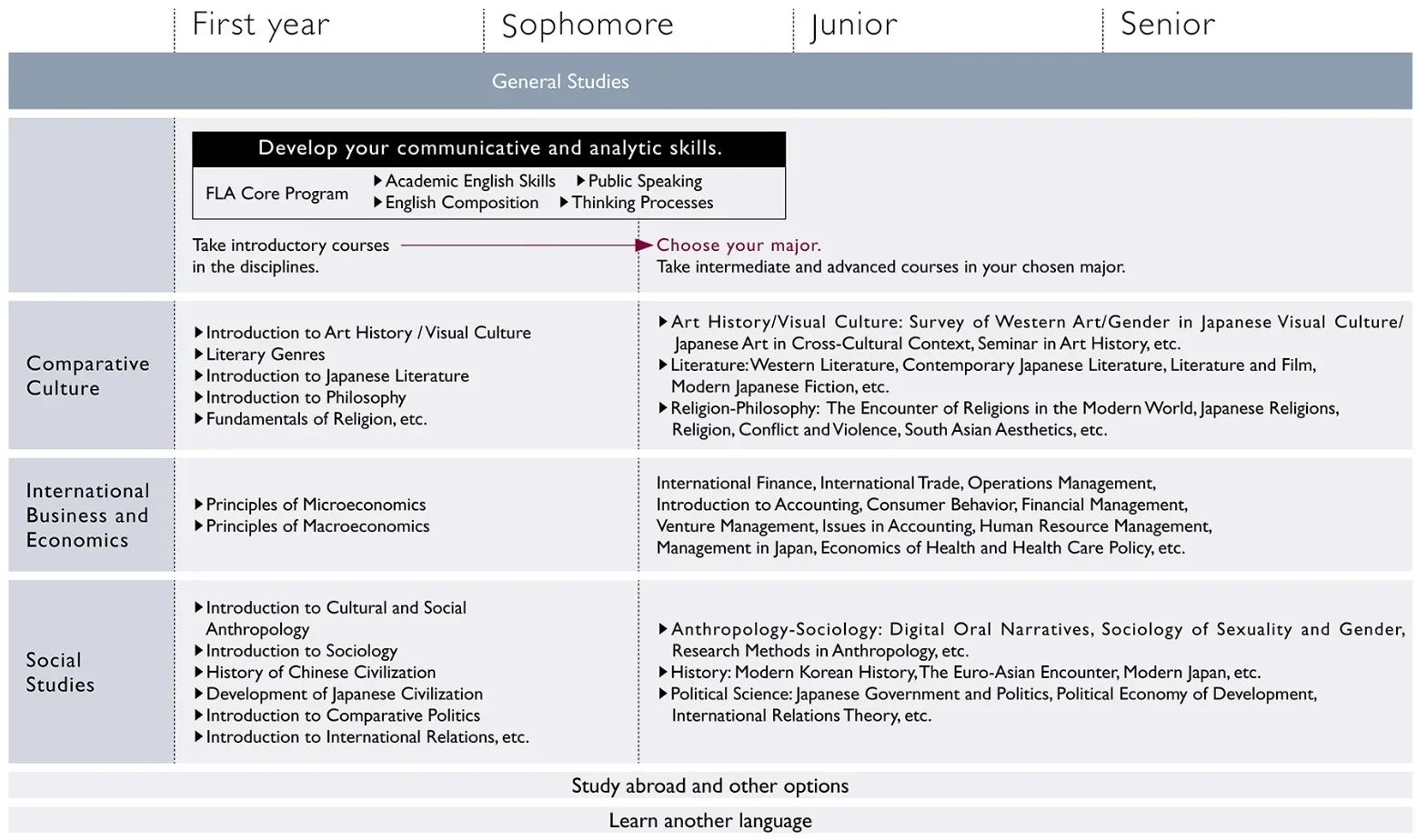
Core Program

The FLA Core Program comprises a set of required courses for degree students. These courses include a sequence of composition courses, a public speaking course, and a course in critical thinking. Before the beginning of classes in both the spring and autumn semesters, all incoming students take a placement test to determine where in the sequence of Core Program courses they will begin. Students are expected to complete Core Program requirements during their first and second years of study. The Core Program serves several purposes within the FLA curriculum. Besides developing the critical reading, writing, and thinking skills needed at the college level, the Core Program curriculum helps students grasp the expansive and interdisciplinary nature of a liberal arts education and, through a close engagement with a wide range of texts and topics, prepares them for choosing a major field of study. The learning goals and objectives of the Core Program emphasize the development of clear, effective, and critical communication in both speaking and writing, as well as the habits of mind that foster integrative thinking and the ability to transfer knowledge and skills from one setting to another. The small size of classes in the Core Program also allows for close interaction between instructor and students as well as among the students themselves. In discussion groups, in peer reading and writing activities, and in other activities, students are encouraged to raise critical questions and to reflect on their interpretations and ideas. Such critical examination in the context of academically rigorous courses prepares students for successful futures and lifelong learning.
Three Majors
Comparative Culture
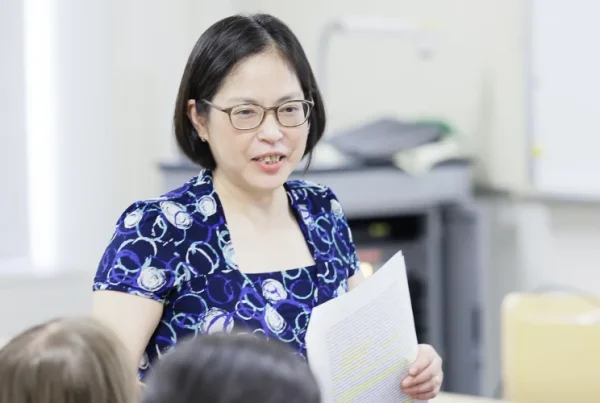
Comparative Culture (CC) is an interdisciplinary major in the humanities focusing on the fields of Art History/Visual Culture, Literature, and Religion and Philosophy.
International Business and Economics
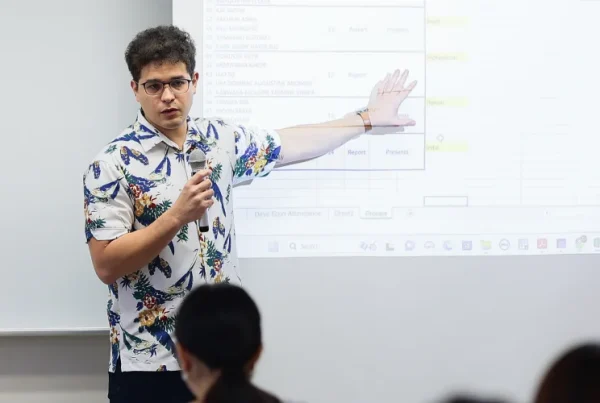
The International Business and Economics (IBE) major offers a unique opportunity for students to study both business and economics in a single major.
Social Studies
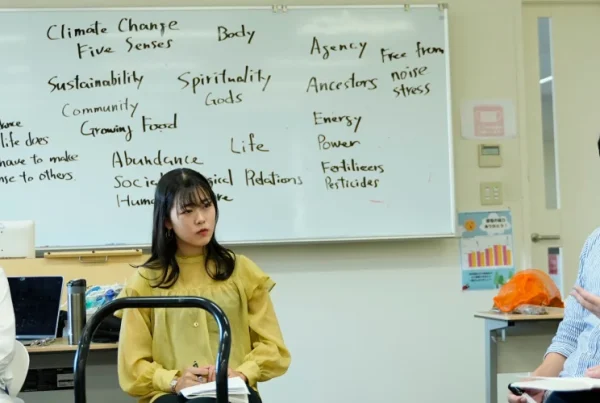
Social Studies is a core component of any liberal arts curriculum. The Social Studies major comprises three concentrations – History, Political Science, and Anthropology-Sociology.
